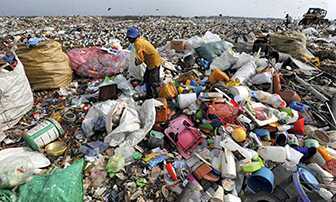
Plastic bags have become an integral part of our daily lives. They are lightweight, convenient, and seemingly harmless. However, there is a hidden danger lurking beneath their shiny surface. Recent research has shown that plastic bags pose a significant threat to our health and the health of our planet.
One of the main dangers of plastic bags is their impact on marine life. When these bags end up in the ocean, they can be mistaken for food by marine animals. The animals ingest the plastic, which can lead to serious health issues and even death. It is estimated that millions of marine animals die each year due to plastic pollution.
Not only do plastic bags harm marine life, but they also pose a risk to human health. Plastic bags are made from a variety of chemicals, including phthalates and bisphenol A (BPA), which have been linked to numerous health problems, including cancer, reproductive issues, and developmental disorders. These chemicals can leach into food and beverages when plastic bags are used for packaging or when they come into contact with hot substances.
Additionally, the production and disposal of plastic bags have detrimental effects on the environment. Plastic bags are made from non-renewable resources such as oil and gas, and their production contributes to greenhouse gas emissions and climate change. Furthermore, plastic bags are not biodegradable and can take hundreds of years to break down, polluting our land and waterways in the process.
It is crucial that we take action to reduce our reliance on plastic bags and find more sustainable alternatives. By utilizing reusable bags, we can significantly decrease the amount of plastic waste that ends up in our oceans and landfills. Governments and businesses should also play their part by implementing policies and initiatives to promote the use of reusable bags and reduce plastic bag consumption.
Plastic bags may seem harmless, but their impact on human health and the environment is far from insignificant. It is time for us to recognize the hidden dangers of plastic bags and take steps towards a more sustainable future.
- The Impact of Plastic Bags on Human Health
- Potential Health Risks Posed by Plastic Bag Usage
- Toxic Chemicals
- Contamination and Bacterial Growth
- Chemical Contaminants in Plastic Bags
- The Dangers of Chemical Contaminants
- Reducing Exposure to Chemical Contaminants
- Microplastics and Their Effects on the Human Body
- Asthma and Allergies: The Connection to Plastic Bags
- Reducing Plastic Bag Usage for a Healthier Future
- The Health Risks of Plastic Bags
- The Importance of Reducing Plastic Bag Usage
- Question-answer:
- What are the hidden dangers of plastic bags on human health?
- How can the chemicals in plastic bags affect our health?
- Are there any safe alternatives to plastic bags?
- What can individuals do to reduce their exposure to plastic bags?
The Impact of Plastic Bags on Human Health
Plastic bags have become a ubiquitous part of our everyday lives. They are used for carrying groceries, storing items, and even packaging products. However, the convenience of plastic bags comes at a high cost to human health.
Plastic bags are made from polyethylene, a material derived from petroleum. When these bags are produced, harmful chemicals are released into the environment, contributing to air and water pollution. The manufacturing process also generates greenhouse gases, which contribute to climate change.
When plastic bags are discarded, they often end up in landfills or are littered in our oceans and rivers. As they break down, they release toxic substances into the soil and water. These toxins can seep into the food chain and ultimately make their way into our bodies.
One of the most significant dangers of plastic bags is their potential to leach harmful chemicals. Studies have shown that when plastic bags come in contact with food or liquids, they can release chemicals such as bisphenol A (BPA) and phthalates. These chemicals are known to disrupt hormones and have been linked to a range of health issues, including reproductive problems and an increased risk of certain cancers.
In addition to the direct health risks posed by plastic bags, their impact on the environment can also indirectly affect human health. Plastic bags often end up in the stomachs of marine animals and birds, leading to suffocation, starvation, and other health issues. This not only disrupts delicate ecosystems but also poses a risk to humans who consume seafood contaminated with plastic particles.
It is important for individuals and governments to take steps to reduce the use of plastic bags and find more sustainable alternatives. By using reusable bags or choosing paper or cloth bags, we can help protect our health and the environment. Additionally, recycling plastic bags and properly disposing of them can help prevent pollution and reduce the impact on human health.
Overall, the impact of plastic bags on human health is far-reaching and should not be underestimated. By understanding the dangers associated with plastic bags and taking action to minimize their use, we can work towards a safer and healthier future for ourselves and the planet.
Potential Health Risks Posed by Plastic Bag Usage
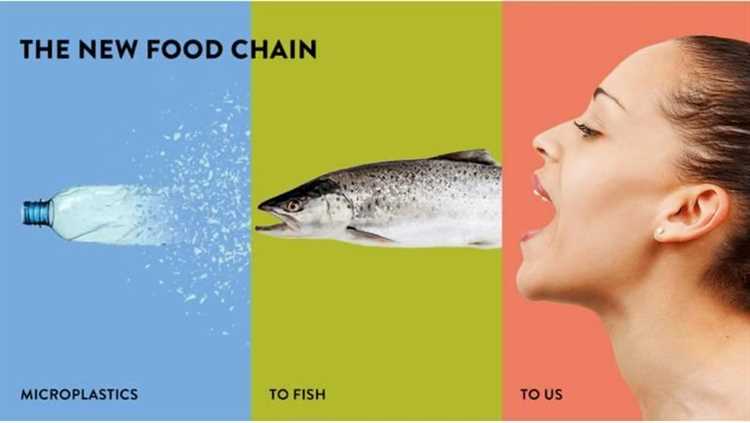
Plastic bags are a common and convenient way for people to carry and transport items. However, their widespread usage poses potential health risks that should not be overlooked.
Toxic Chemicals
Many plastic bags contain harmful chemicals such as phthalates, bisphenol A (BPA), and lead. These chemicals can leach into the air and onto the items stored in the bags, especially when exposed to heat or sunlight. Phthalates, for example, have been linked to hormone disruptions and reproductive health issues, while BPA has been associated with developmental problems and increased risk of certain diseases.
When plastic bags end up in landfills or oceans, they can break down into smaller pieces called microplastics. These microplastics can become suspended in the air and water, ultimately entering the food chain and posing potential health risks to both humans and animals.
Contamination and Bacterial Growth
Plastic bags are frequently reused, which can lead to contamination and bacterial growth. When used to carry groceries, for example, they can come into contact with raw meat or other perishable items, leaving behind traces of bacteria. If not properly cleaned, these bags can become breeding grounds for harmful bacteria, posing a risk of foodborne illnesses.
In addition, plastic bags that come in contact with food or personal care products may contain harmful residues from the manufacturing process. These residues can potentially contaminate the items they come into contact with, increasing the risk of exposure to toxic substances.
It is essential to be aware of these potential health risks associated with plastic bag usage. By reducing our reliance on plastic bags and opting for more sustainable alternatives, we can help minimize the negative impacts on both our health and the environment.
Chemical Contaminants in Plastic Bags
Plastic bags may seem harmless, but they can actually pose a hidden danger to human health. One of the main concerns is the presence of chemical contaminants in these bags.
Plastic bags are commonly made from polyethylene, a type of plastic that is derived from fossil fuels. During the manufacturing process, various chemical additives are used to give the bags their desired properties. These additives can include plasticizers, antioxidants, colorants, and UV stabilizers.
One of the most concerning chemical contaminants in plastic bags is bisphenol A (BPA). BPA is an industrial chemical used in the production of polycarbonate plastics and epoxy resins. It is known to leach out of plastics and can mimic the hormone estrogen in the body. Research studies have linked BPA exposure to a wide range of health issues, including reproductive problems, developmental delays, and an increased risk of certain types of cancer.
In addition to BPA, plastic bags can contain other harmful chemicals such as phthalates. Phthalates are a group of chemicals used to soften plastics and make them more flexible. Like BPA, phthalates can leach out of plastic and have been associated with adverse health effects, particularly in the reproductive system.
The Dangers of Chemical Contaminants
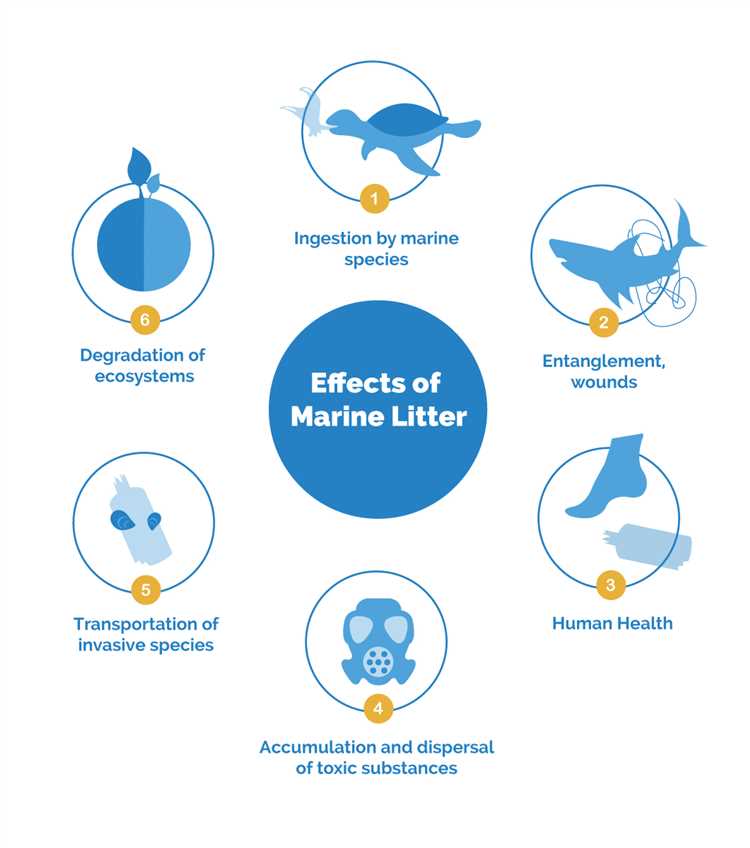
When plastic bags come into contact with food or beverages, the chemical contaminants can transfer into the contents. This can be a cause for concern, as these chemicals can then enter the human body upon consumption. Studies have shown that these chemicals can accumulate in the body over time, leading to potential health risks.
Reducing Exposure to Chemical Contaminants
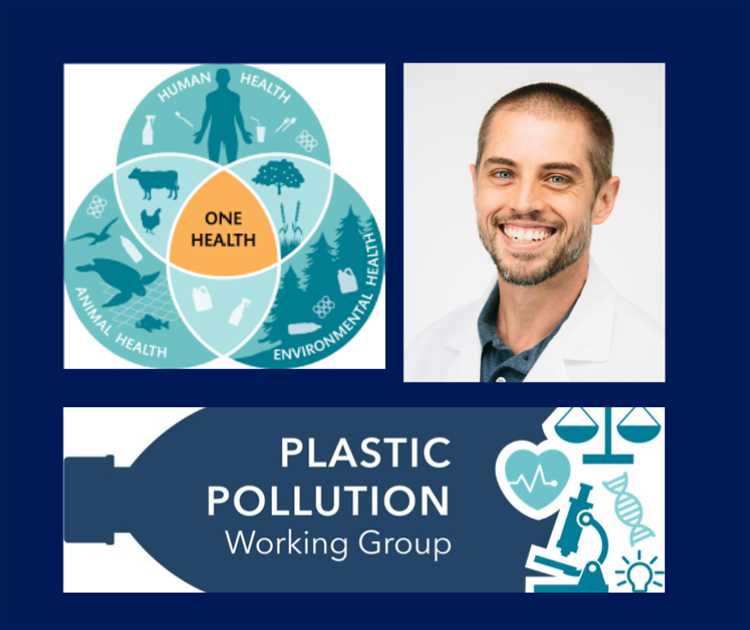
To reduce your exposure to chemical contaminants in plastic bags, consider using alternatives such as reusable cloth bags or paper bags. These options are generally considered safer and more environmentally friendly.
It’s also important to properly store and dispose of plastic bags to minimize the risk of contamination. Avoid using plastic bags for storing food or microwaving them, as this can increase the likelihood of chemical leaching.
Conclusion
Chemical contaminants in plastic bags can pose a hidden danger to human health. The use of alternative bag options and proper handling of plastic bags can help reduce exposure to these chemicals and promote a healthier environment for all.
Microplastics and Their Effects on the Human Body
Microplastics, tiny particles less than 5mm in size, have become a significant environmental concern in recent years. These small pieces of plastic can come from a variety of sources, including the degradation of larger plastic items, microbeads in personal care products, and the breakdown of synthetic fabrics.
Once released into the environment, microplastics can be ingested by organisms and eventually make their way up the food chain. This means that humans may unknowingly consume microplastics through the food and water they consume.
Studies have shown that microplastics can have adverse effects on the human body. The presence of microplastics in the digestive system, for example, has been linked to inflammation, damage to the intestinal lining, and disruptions in gut bacteria. These effects can lead to a range of health issues, including inflammatory bowel disease and an increased risk of certain cancers.
In addition to the digestive system, microplastics have also been found to accumulate in other organs, such as the liver and lungs. This accumulation can cause oxidative stress and inflammation, potentially contributing to the development of respiratory and liver diseases.
Furthermore, microplastics have the potential to act as carriers for toxic chemicals. These chemicals can leach into the body upon ingestion of microplastics, leading to additional health risks. Some studies have even linked the presence of microplastics in the body to hormonal disruptions and reproductive problems.
While more research is needed to fully understand the long-term effects of microplastics on human health, the current evidence suggests that these tiny particles pose a significant threat. Measures to reduce the release of microplastics into the environment, as well as efforts to mitigate their effects, are crucial for safeguarding human health.
Asthma and Allergies: The Connection to Plastic Bags
Plastic bags may seem harmless, but they can have a significant impact on human health, particularly when it comes to asthma and allergies. Research has shown a direct connection between the use of plastic bags and an increase in respiratory issues.
Plastic bags are made from polyethylene, a synthetic polymer derived from crude oil. These bags contain harmful chemicals, such as phthalates and bisphenol A (BPA), which can be released into the air and inhaled. When individuals with asthma or allergies are exposed to these chemicals, it can trigger an allergic reaction or exacerbate existing respiratory conditions.
In addition to the chemicals found in plastic bags, they also act as a breeding ground for mold and dust mites. These microscopic organisms thrive in the warm and moist environment inside plastic bags. When individuals come into contact with mold or dust mites, it can trigger asthma attacks or allergic reactions.
Furthermore, the lightweight and easily transportable nature of plastic bags makes it easy for allergens, such as pollen and pet dander, to cling to the surface. When individuals handle these bags and then touch their face or inhale near the bags, it can introduce allergens into their respiratory system, leading to symptoms such as sneezing, wheezing, and difficulty breathing.
To minimize the risk of asthma and allergies associated with plastic bags, it is important to reduce their use and opt for alternatives, such as reusable cloth bags. These bags are free from harmful chemicals, can be easily cleaned to prevent the growth of mold and dust mites, and do not attract allergens like plastic bags do. By making this simple change, individuals can significantly improve their respiratory health.
| Effects of Plastic Bags on Asthma and Allergies | Prevention and Solutions |
|---|---|
| Release harmful chemicals like phthalates and BPA that can trigger allergic reactions or worsen existing respiratory conditions. | Switch to reusable cloth bags that are free from harmful chemicals. |
| Act as a breeding ground for mold and dust mites, which can trigger asthma attacks and allergic reactions. | Regularly clean reusable cloth bags to prevent the growth of mold and dust mites. |
| Attract allergens like pollen and pet dander, introducing them into the respiratory system and causing symptoms. | Store reusable cloth bags in a clean and allergen-free environment. |
It is important to raise awareness about the connection between plastic bags and respiratory health. By educating individuals about the risks and promoting alternative solutions, we can protect ourselves and future generations from the hidden dangers of plastic bags.
Reducing Plastic Bag Usage for a Healthier Future
Plastic bags have become an integral part of our daily lives, but their convenience comes at a price. The environmental impact of plastic bags is well-documented, with their contribution to pollution and negative effects on wildlife being widely recognized. However, the hidden dangers of plastic bags to human health are often overlooked.
The Health Risks of Plastic Bags
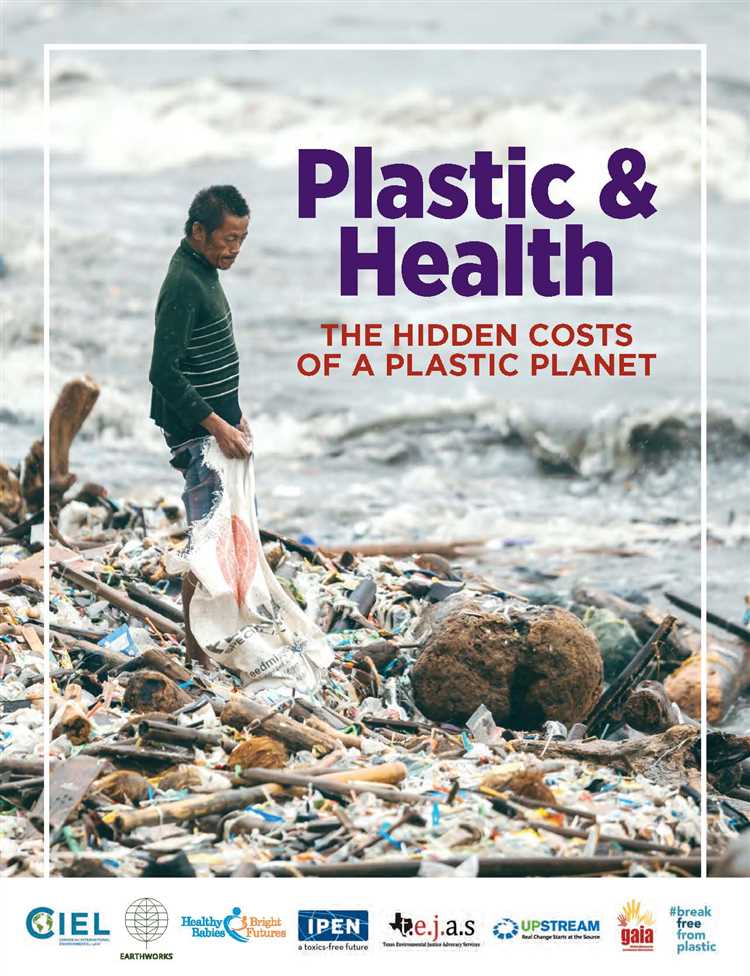
Plastic bags are made from non-biodegradable materials, such as polyethylene, which can take hundreds of years to decompose. As they break down, they release harmful toxins into the environment, contaminating our soil and water sources. These toxins can find their way into our food chain, posing a serious risk to human health.
In addition, plastic bags are often treated with chemicals during the manufacturing process, such as phthalates and bisphenol A (BPA). These chemicals have been linked to various health issues, including hormonal disruptions, reproductive problems, and an increased risk of cancer. When we come into contact with these chemicals through the use of plastic bags, we expose ourselves to potential health hazards.
The Importance of Reducing Plastic Bag Usage
Reducing plastic bag usage is essential for creating a healthier future. By minimizing our reliance on plastic bags, we can significantly reduce the environmental and health risks associated with their production and disposal.
- Adopt Reusable Bags: One effective way to reduce plastic bag usage is to switch to reusable bags made from organic materials, such as cotton or canvas. These bags are not only durable and long-lasting but also more eco-friendly and safer for our health.
- Support Sustainable Alternatives: Encourage businesses and local governments to promote the use of sustainable alternatives, such as paper bags or biodegradable plastic bags. These options have a lower environmental impact and are less harmful to human health.
- Education and Awareness: Raise awareness about the hidden dangers of plastic bags to human health through educational campaigns and community initiatives. By informing people about the risks and providing them with alternative solutions, we can inspire behavioral changes and reduce plastic bag usage.
By taking these steps, we can work towards a plastic bag-free future, where both the environment and human health are protected. It’s time to prioritize the well-being of our planet and ourselves by reducing plastic bag usage and embracing sustainable alternatives.
Question-answer:
What are the hidden dangers of plastic bags on human health?
Plastic bags can have several hidden dangers on human health. One of the main concerns is the presence of harmful chemicals in plastic bags, such as phthalates and bisphenol A (BPA), which can leach into food and water and have negative effects on the endocrine system and reproductive health. Additionally, plastic bags can release toxic fumes when burned, causing respiratory issues. Furthermore, the production and disposal of plastic bags contribute to pollution and climate change, which can have indirect effects on human health.
How can the chemicals in plastic bags affect our health?
The chemicals in plastic bags, such as phthalates and bisphenol A (BPA), can have various negative effects on human health. These chemicals are known to disrupt the endocrine system, which controls hormone production and can lead to reproductive issues, developmental problems, and even an increased risk of certain cancers. The chemicals can leach into food and water when in contact with plastic bags, especially when exposed to heat or acidic substances, further increasing the risk of exposure. Long-term exposure to these chemicals has been linked to several health problems, so it is important to minimize their use.
Are there any safe alternatives to plastic bags?
Yes, there are several safe alternatives to plastic bags that can help reduce the negative impacts on human health and the environment. One popular alternative is using reusable bags made from materials such as cotton, canvas, or jute. These bags are durable, washable, and can be used multiple times, reducing the need for single-use plastic bags. Another option is using biodegradable or compostable bags made from materials like cornstarch or paper. These bags break down more easily in the environment and have fewer negative effects on human health. It is important to choose alternatives that are sustainable and environmentally friendly.
What can individuals do to reduce their exposure to plastic bags?
There are several steps individuals can take to reduce their exposure to plastic bags. Firstly, bringing reusable bags when shopping can greatly help in reducing the use of plastic bags. It is important to have a few reusable bags with you at all times, so you are always prepared. Additionally, avoiding the use of plastic bags when storing or heating food is recommended, as this can reduce the risk of chemical leaching. Lastly, properly disposing of plastic bags and recycling them when possible can prevent them from ending up in the environment and causing further harm. Small changes in daily habits can make a big difference in reducing plastic bag usage and protecting human health.